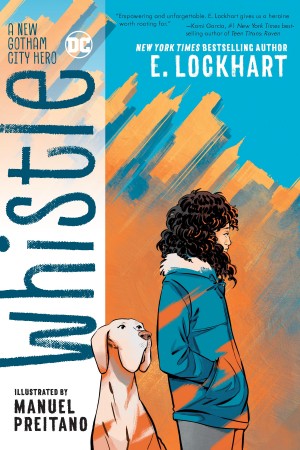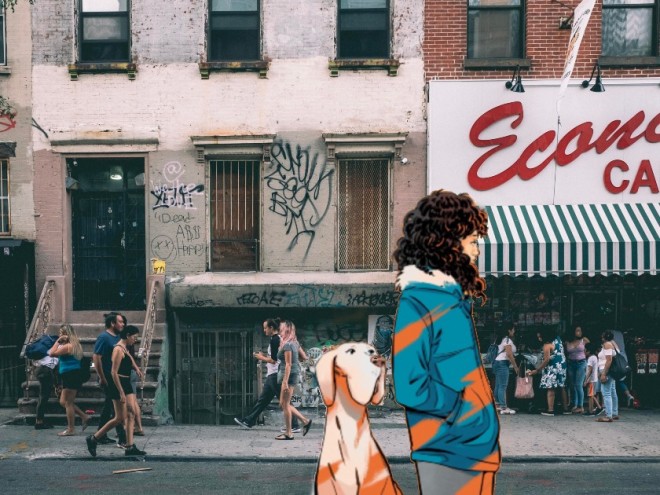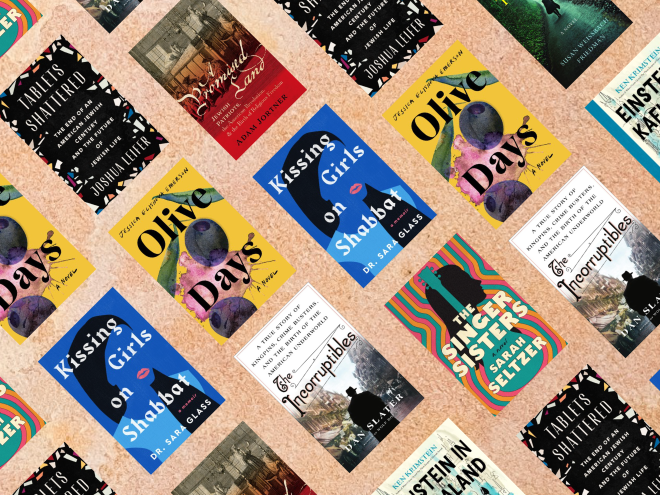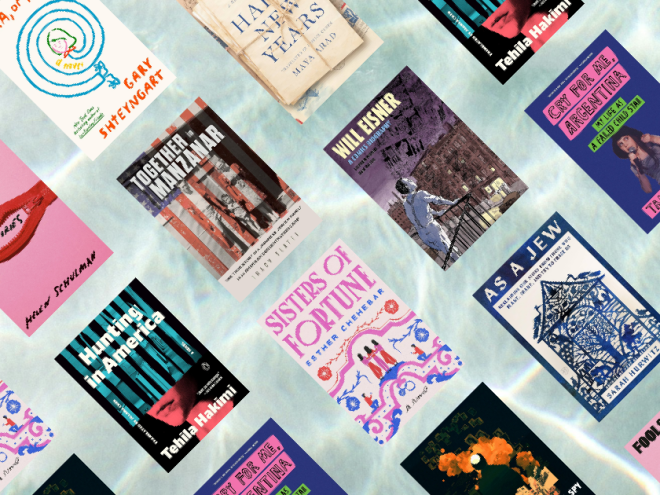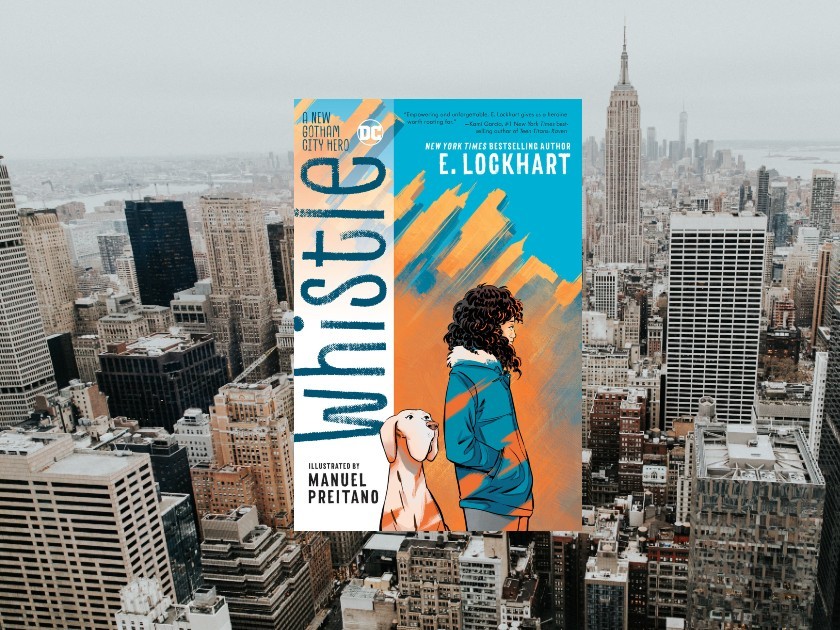
E. Lockhart shares the Jewish influences and inspiration behind her new DC comic Whistle: A New Gotham City Hero.
Simona Zaretsky: How do Willow and her story fit into the DC universe? What kind of research did you do into the universe before writing the book?
E. Lockhart: Willow (who becomes the superhero Whistle, teamed up with her dog Lebowitz, aka the Hound) gets sucked into the Gotham City criminal underworld. When she gets her powers, she is moved to reconsider her loyalties — will she keep working for the criminals who help her pay the bills and care for her sick mother, or will she fight against them?
I grew up reading Batman comics and seeing movies set in Gotham. I was very familiar with the rogues gallery of DC super-villains, and psyched to write a story featuring some of them. But I invented a new neighborhood and set my story there. That gave me some freedom to create a story world that fits in Gotham but is also its own thing.
SZ: Willow and her mother have a close, nurturing relationship. However, it falls to the daughter to take care of her mother financially and emotionally. Can you speak on their relationship?
EL: I grew up with a single mother and wanted to represent a family like the one I grew up in. Unlike my own mom, Willow’s mom is very sick and they have no health insurance. When Naomi can’t work any more, Willow begins working nights. When they need even more money she takes a job for the Riddler, who offers not only quick cash but also glamour.
Lots of kids work jobs to help their families. Some work illegal jobs to get better money. In Whistle you see a heightened, theatrical version of an everyday challenge lots of teenagers face.
I created a Lower East Side type neighborhood in Gotham and made my heroine deeply connected to that neighborhood.
SZ: In what ways did Judaism inform your construction of Willow’s story and her character?
EL: My father is Jewish, as is my spouse. My mother practices a new age religion. I grew up with a strong sense of my paternal family’s identity — they came to the US from Russia and Poland — and the way it was connected to New York City. I have long loved the Lower East Side — my dad used to live about fifteen blocks from there — and I had researched its Jewish history. It used to be home to more Jewish people per acre than anywhere else in the world. It had 500 synagogues. So I created a Lower East Side type neighborhood in Gotham and made my heroine deeply connected to that neighborhood. She is a secular Jewish person, which is how I identify, and thinks about morality through that lens.
SZ: What comics did you read growing up? Which characters really spoke to you?
EL: Archie, Batman, Spider-man, Richie Rich, Fantastic Four, and Incredible Hulk. I love Ben Grimm/Thing (also a Jewish hero, one of the Fantastic Four) and Hulk for their deeply conflicted relationship to their heroism and the transformation of their bodies. I love Spidey for his snark and teenage angst. And Spidey, like Whistle, is a “friendly, neighborhood” hero.
SZ: Down River, located in Gotham City, is vulnerable and taken advantage of by those with power; Willow protests the governmental neglect of her neighborhood. Can you speak to the pivotal role of setting in Whistle?
EL: I’m interested in the human situations in hero stories. How does it feel? What are the costs? Whom do you protect and why? I wanted Whistle to really care about her school, her neighborhood deli, and cultural institutions like the library, the synagogue, and the mosque. When supervillains threaten those, the reason is a familiar one: it’s waterfront real estate. Living in NYC, I am listening to the conversations going on about gentrification and I wanted to explore that very real issue in this superhero genre.
SZ: Activism and social justice are integral aspects of Willow’s life. How does being an activist inform Willow’s character?
EL: She’s like a lot of the kids I know — remarkably aware of social issues and trying to make a difference. Kids I know in Workers Circle and other organizations are initiating protests, making zines, doing teach-ins, and speaking out. When I was young, I was oblivious and self-centered. I wanted to capture some of the really admirable passion I see around me.
SZ: What was your process of creating Garfield’s (Willow’s crush) story, especially as it connects with Willow’s own journey?
EL: Garfield is a character who is already in the DC pantheon. I reimagined him a bit but insiders will recognize Beast Boy immediately, though he isn’t revealing his powers here. A lot of his story came ready-made. I chose him because, like Willow, he has animal- related powers. He is also new to Down River, and provides an alternative perspective on life there.
SZ: Can you speak on the duality and moral tension within the villains of the story? How was it to write in the mind of the villain?
EL: I love these villains. They are so juicy.
There is good and bad in all of us, I think, so I worked to show the human sides of Poison Ivy and the Riddler. They do terrible things, but they can be awesome at times. Whistle’s conflicting loyalties are what make her story interesting.
SZ: What was the process like for writing the story as a graphic novel and working with illustrator Manuel Preitano?
EL: I wrote the script and then Manuel came on to illustrate it. We had an especially fun time creating Whistle’s hero costume. We sent lots of Pinterest images back and forth.
SZ: What are you currently writing?
EL: I have a new YA novel in the works but I am sworn to secrecy about it. People will get the earliest scoop if they come hang out with me on social. Twitter: elockhart. IG: elockhartbooks.
Simona is the Jewish Book Council’s manager of digital content strategy. She graduated from Sarah Lawrence College with a concentration in English and History and studied abroad in India and England. Prior to the JBC she worked at Oxford University Press. Her writing has been featured in Lilith, The Normal School, Digging through the Fat, and other publications. She holds an MFA in fiction from The New School.
